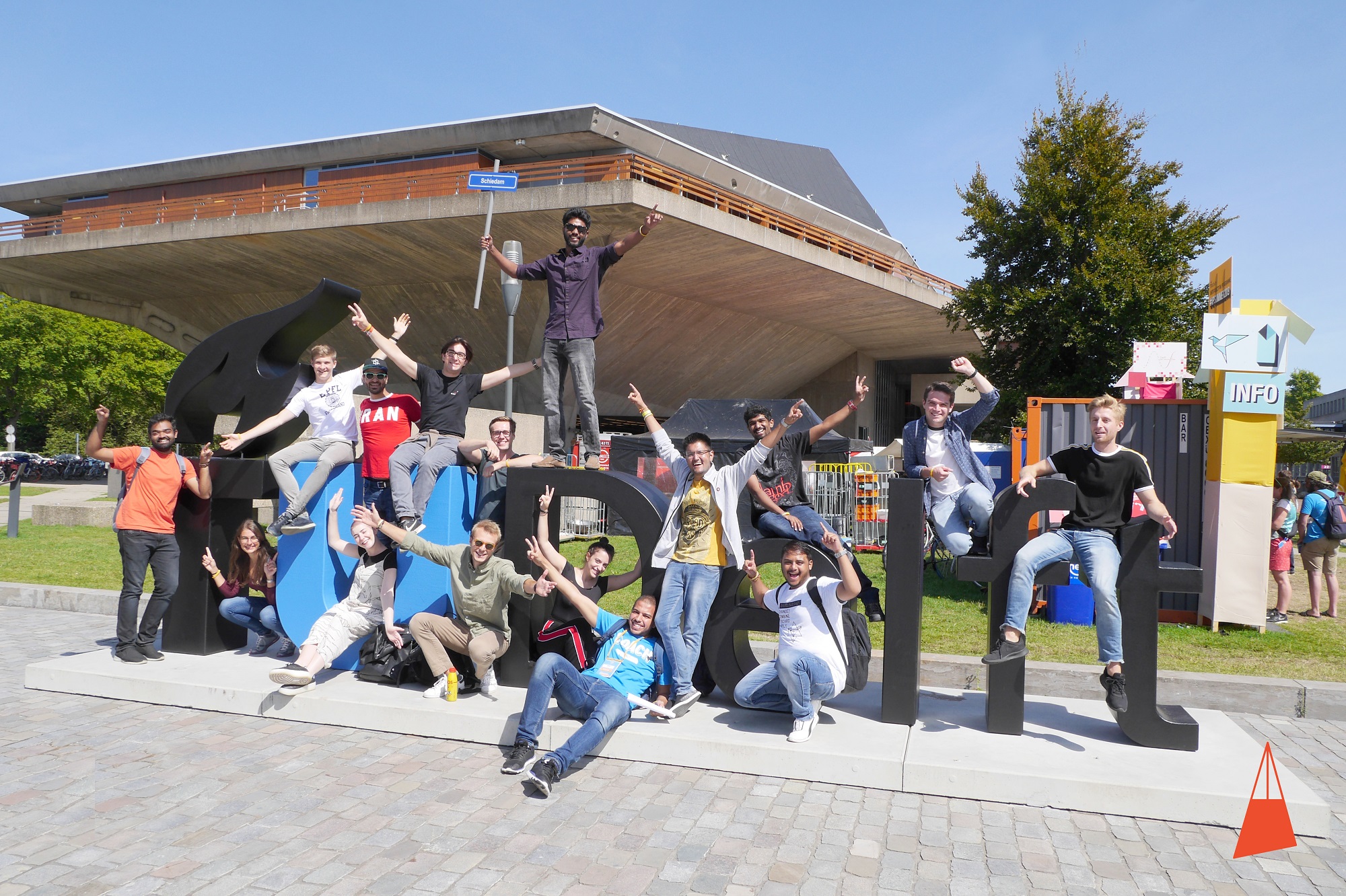A Parliament motion calls on Dutch higher education to stop actively recruiting internationals. According to eight institutions, these students are badly needed.
A group of internationals in front of the aula building aula on TU Delft Campus. (Photo: Roos van Tongeren)
‘In the coming decades, hundreds of thousands of new highly skilled professionals will be needed in the Netherlands, and labour market shortages will only increase without adequate measures’, an opinion article in NRC states. Foreign students are also important for the international orientation of education programmes.
The article was written by administrators from four universities (Tilburg, Maastricht, Twente and Groningen) and four universities of applied sciences (Saxion, BUas, Amsterdamse Hogeschool voor de Kunsten and HAS). The institutions share their opinion because the Lower House passed a motion stating that universities and colleges should stop actively recruiting for the time being until the minister comes up with new measures to manage the influx of foreign students.
Concerns
There are major concerns in the Lower House about the influx of international students. At universities, 40 per cent of first-year bachelor and master students are now international. It leads to problems in the housing market and sometimes displaces Dutch students in selective programmes.
TU Delft did not sign the opinion article. “TU Delft has not been actively recruiting for years,” said spokesperson Karen Collet when asked. “We do not to fairs or advertise, things like that. The number of students is already higher than the maximum of 25 thousand we agreed on with the municipality of Delft.”
‘TU Delft has not been actively recruiting for years’
Internationals who do come to TU Delft do so because of word-of-mouth advertising and TU Delft’s reputation, says Collet. Information is provided, though. “We tell students what studying in Delft entails and what the problems are in the Netherlands in terms of accommodation”, she says. “You want to prevent students from being disappointed.”
Agreement
In an ‘administrative agreement’ signed earlier this year, the universities promised the minister to exercise ‘considerable restraint’ with regard to international recruitment, ‘unless located in depopulating regions and/or recruiting for degree programmes that are crucial for sectors facing personnel shortages’.
The eight administrators feel that the House of Representatives should not block current policy. ‘With one show of hands, the House is putting these institutions in big trouble’, the article reads. ‘Not recruiting will lead to a sharp decline in enrolments. And fewer enrolments, in turn, will lead to an enormous drop in funding – high double-digit percentages are not impossible.’
Economic benefits
The authors of the opinion article also point out the economic benefits of welcoming international students. While these do indeed exist, the facts presented by the eight administrators are not entirely correct.
They seem to think that foreign students in the Netherlands already make significant contributions to the economy during their studies. They base this on a study by the Netherlands Bureau for Economic Policy Analysis (CPB), citing amounts ranging from 5,000 to 17,000 euros for European students and a minimum of 69,000 euros for students from outside Europe.
But according to CPB, these benefits mainly come after graduation, thanks to students who stay in the Netherlands for work. The average amount is 5,000 euros per European student at a university of applied sciences and 17,000 euros per European student at a research university. For students from outside Europe, the amounts are 69,000 and 96,000 euros, respectively. The figures for the latter group are higher because the government does not financially contribute to their studies.
(HOP, Bas Belleman / Delta, Rob van der Wal)
Do you have a question or comment about this article?
redactie@hogeronderwijspersbureau.nl


Comments are closed.